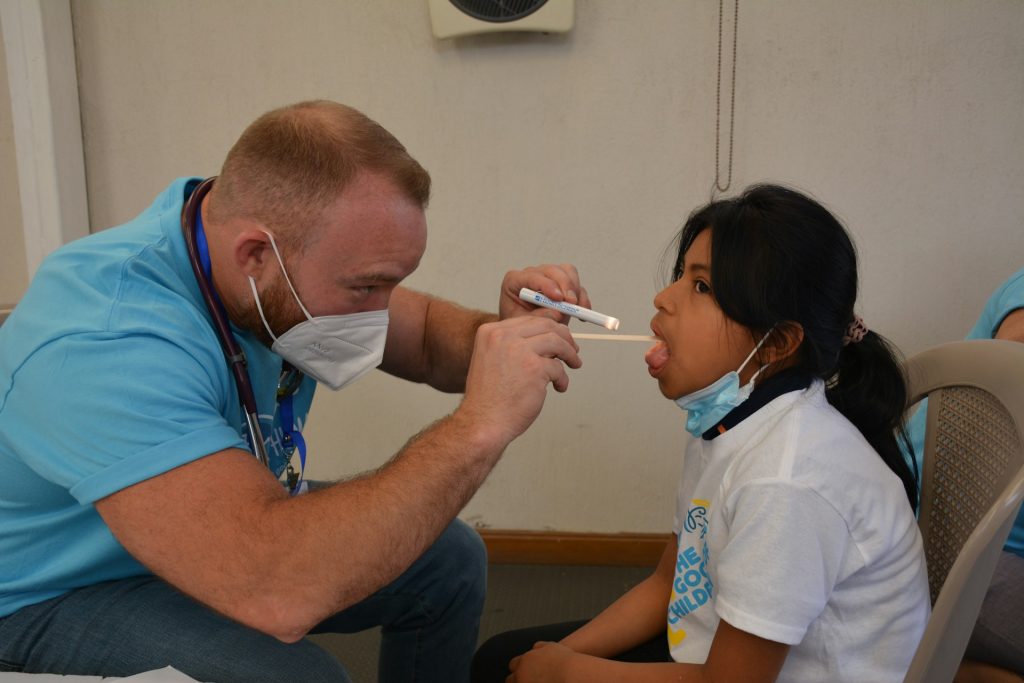Sore throat, a common ailment experienced by both adults and children, can range from a minor inconvenience to a significant discomfort. Understanding its symptoms, diagnosis, and treatment options can help alleviate discomfort and prevent complications. Here’s what you need to know:

Symptoms and Diagnosis
When experiencing a sore throat, a visit to the doctor may be necessary for a proper diagnosis. Your or your child’s doctor will likely conduct a physical examination, which may include using a lighted instrument to inspect the throat, ears, and nasal passages, as well as checking for swollen glands in the neck.
A throat swab may be performed to detect the presence of streptococcal bacteria, a common cause of sore throat. Rapid antigen tests can provide quick results, although a throat culture may be sent to a lab for confirmation if the initial test is negative. Molecular tests may also be used for accurate and speedy diagnosis.
Treatment Options
Treatment for a sore throat depends on its underlying cause. Viral infections, which are often the culprit, typically resolve on their own within a week and do not require antibiotics. Over-the-counter pain relievers such as acetaminophen or ibuprofen can help alleviate pain and fever.
For bacterial infections, antibiotics may be prescribed by your doctor or pediatrician. It’s crucial to complete the full course of antibiotics as directed to prevent complications and reduce the risk of recurrence.

Self-Care Strategies
Regardless of the cause of the sore throat, several at-home care strategies can help alleviate symptoms and promote healing. These include:
- Rest: Ensure an adequate amount of sleep and minimize strain on the voice.
- Stay Hydrated: Drink plenty of fluids to keep the throat moist and prevent dehydration.
- Comforting Foods: Warm liquids such as broth or tea with honey can soothe a sore throat.
- Saltwater Gargle: Gargling with saltwater can provide relief by reducing inflammation.
- Humidify the Air: Use a cool-air humidifier to maintain moisture levels in the air and soothe the throat.
- Avoid Irritants: Steer clear of cigarette smoke and other irritants that can exacerbate symptoms.
Alternative Medicine
While several alternative remedies are often used to alleviate sore throat symptoms, evidence of their effectiveness is limited. Herbal products such as slippery elm, licorice root, and marshmallow root are commonly used, but it’s essential to consult with your doctor before use, especially if you’re taking prescription medications or have underlying health conditions.
Preparing for Your Appointment
Before your doctor’s appointment, make note of symptoms, recent contacts with illness, and any medications or supplements being taken. Be prepared to discuss your symptoms and ask questions about the diagnosis and treatment plan. Your doctor may inquire about other symptoms, recent illnesses at home, and lifestyle factors such as smoking or exposure to secondhand smoke.

By understanding the symptoms, diagnosis, and treatment options for sore throat, you can take proactive steps to manage symptoms effectively and promote recovery. If symptoms persist or worsen, don’t hesitate to seek medical attention for further evaluation and treatment.





